Trans-Siberian Express
Trans-Siberian Railway is the legendary railroad crossing the whole Russia from west to east. Its starting point is Moscow and the final destination is Vladivostok in the Far East close to China, Korea and Japan. Trans-Siberian Railway (also known as “Transsib” or “Transsibirka” briefly in Russian) is the longest railway in the world. Its length from Moscow to Vladivostok is 9288.2 kilometers. A train crosses this distance in 6-7 days depending on the number of stops. During this time you will change 7 time zones.
Trans-Siberian Railway passes through most interesting places of Russia. There are 87 cities lying on its way. Besides Moscow and Vladivostok most attractive cities for tourists are Yaroslavl (or Nizhny Novgorod, depending on the route), Ekaterinburg, Novosibirsk, Irkutsk. Transsibirka goes about Lake Baikal southern parts and you can enjoy its view from a train window. The same is for slightly replaced landscapes of Central Russia, Ural, Siberia, Transbaikal and Far East.
Trans-Siberian Railway crosses 16 big Russian rivers, including Volga, Kama, Ob, Yenisei, Irtysh and Amur. A bridge over the Amur River is the longest on this railway: approximately 2.5 kilometres. On the train ride, depending on the chosen route, there are 70 to 160 stops, which last from 1 to 40 minutes, but average stop is about 20 minutes.
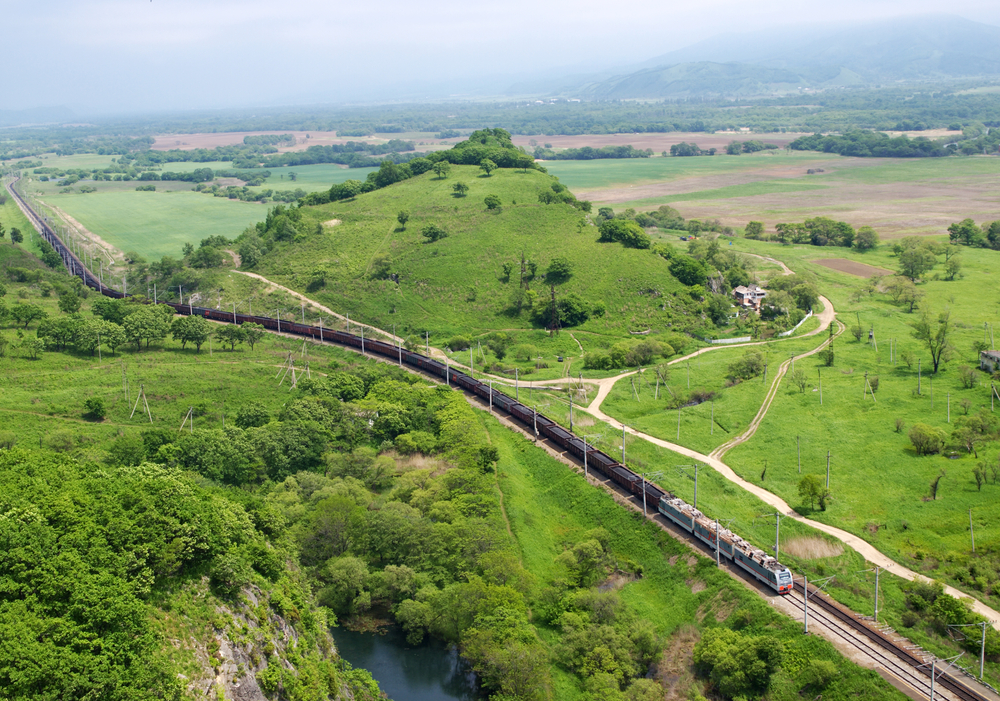
Travel route, trains and budget
A journey on the Trans-Siberian Railway can be started from Moscow or Vladivostok. Some tourists, who want to feel a scale of the country, pass this way without stops, enjoying views from a window and talking to other travellers.
Without stops
There are two direct trains that connect Moscow and Vladivostok: a premium service train Russia (№002 from Moscow, №001 from Vladivostok) which takes 6 days and a usual train №100 (№99 from Vladivostok). Tickets for the second train are about 1.5-2 times cheaper, but it goes one day longer and the comfort level is in the lower tier: air conditioners and sockets can be inactive, and cleanliness may be not be good. The Russia train goes through Nizhny Novgorod and the №100 through Yaroslavl.
A place in a four-passenger soft compartment in the Russia train will cost about 35000-45000 rubles ($500-700), in trains №99 or №100 – 16000-18000 rubles ($250-270). A place in a couchette carriage (a carriage of 54 couchettes with almost no partitions between them) will cost around 10000-12000 rubles ($150-170) in the Russia train and 6500-7500 rubles ($90-110) in the train №100. Also on the Russia train, it’s possible to buy a ticket for a two-bed compartment with enhanced comfort. But the price will also be “enhanced” – from 60000 rubles ($950-1000).
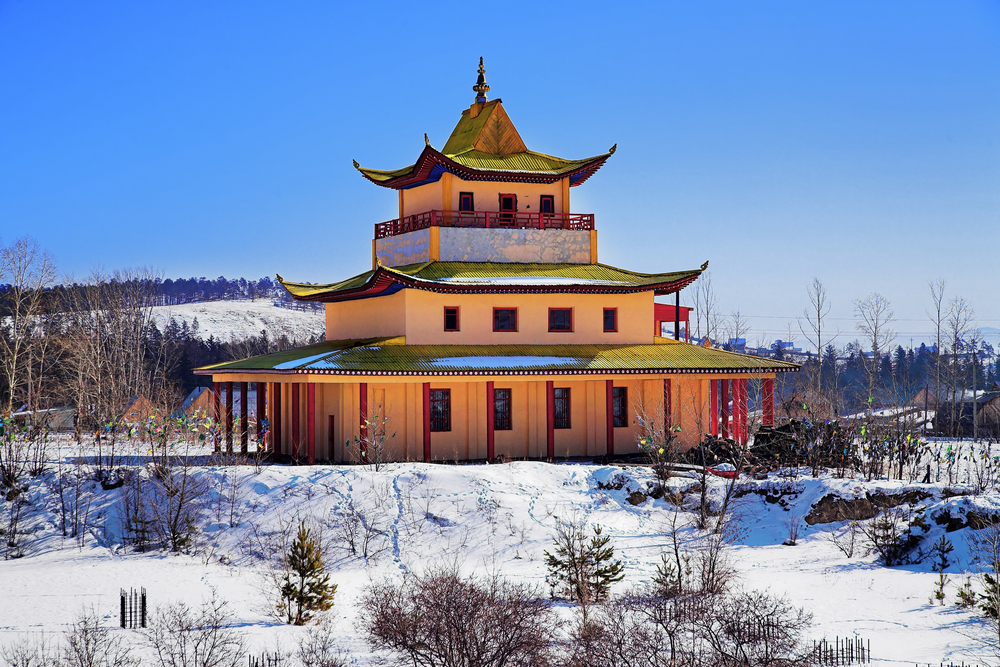
With stops
Some tourists decide to make their trip more profound and divide their railway journey into individual parts, stopping at interesting cities for one or several days. In this case, you should buy a separate train ticket for each segment of the way – it is impossible to get off the train and later catch another with one ticket, even if it was bought for a longer destination.
Tourists usually stop in Ekaterinburg (the capital of the Ural region), Irkutsk (near Lake Baikal) and Novosibirsk (the largest city in Siberia and the 3rd largest city in Russia). Ulan-Ude (the capital of Buryatia with beautiful Buddhist temples), Nizhny Novgorod and Yaroslavl (Russian ancient cities) are also worth visiting.
If you are planning a route with stops, you can diversify your trip. The Trans-Siberian Railway has several parallel branches. The main way, which makes a direct train, goes through Yaroslavl, Kirov, Perm, Ekaterinburg, Tyumen, Omsk, Novosibirsk, Krasnoyarsk, Irkutsk, Ulan-Ude, Chita and Khabarovsk.
However, local trains (including premium service) make connections between many Russian big cities, so you can explore the Transsibirka south direction using these branches. The difference from the main road is that trains to Ekaterinburg go through ancient cities Murom and Kazan, and after Novosibirsk they also have a stop in Novokuznetsk. Further steps to Vladivostok are almost the same.
There is also a “historical” route through Ryazan, Samara, Ufa, Zlatoust and Chelyabinsk that connects with the main road after Novosibirsk. Once upon a time it was called The Great Siberian Way. All these cities are also rather interesting. There are no direct trains to Vladivostok through the south and the historical directions, so the only way to visit them is to use branches.
Of course a purchase of unconnected tickets will increase transportation costs, but not critically. It will mostly affect prices for couchette carriage tickets: for all separate tickets Moscow-Ekaterinburg, Ekaterinburg-Novosibirsk, Novosibirsk-Irkutsk and Irkutsk-Vladivostok you will have to pay about 18000 rubles. But compartment tickets are likely to cost about the same or just 5,000-10,000 rubles more.
Not all of these cities have trains every day, so if you are planning a difficult route, it’s better to plan it carefully according to train schedule and buy tickets in advance.
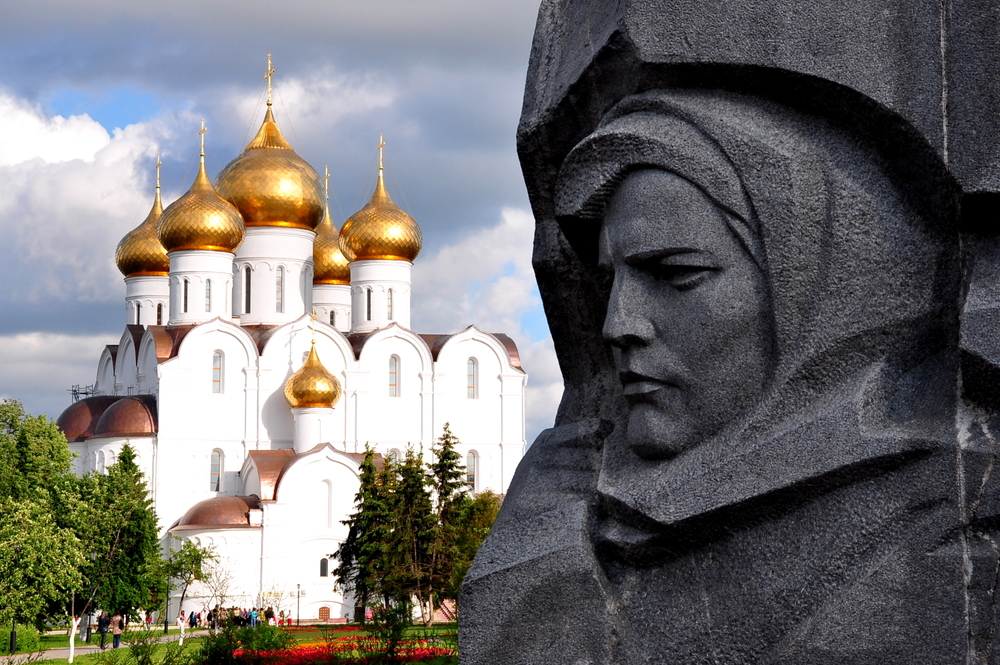
Beijing – Moscow and Trans-Siberian Railway
A considerable part of the Trans-Siberian Railway can be covered by using a train from Beijing to Russia. A railroad leading to China connects with the Trans-Siberian Railway near the Chita town (Eastern Siberia), and then a train goes from Transsibirka to Moscow through some main cities of Siberia, Ural and Central Russia. You can get off at an interesting place and then travel with other domestic trains or pass all the way from China to Russia without stops.
You should know that Russian international train tickets can only be bought in offices. It can be an inconvenience if you are planning a complex route.
Comfort and life in a train
A ticket price may include or not include meals. If there is a Russian letter “У” in a “Category” column on a ticket (or in a reservation system during purchase), it means that meals are included in the cost. Next to the letter “У” is a number which means a number of meals a day. As a rule, it is either 1 or 2. If there is no letter “У” it means that you will have to think about food on your own. In couchette carriages, meal is not provided.
However, you will not die of hunger. Firstly, every train has a dining carriage. The prices there are similar to average restaurants and a lunch will cost about 1000-1500 rubles per person. Secondly, during numerous stops at train stations, you can buy products and food, including instant noodles. Every carriage is equipped with hot water boiler and there is often a regular queue for the hot water. Train conductors also offer tea and sweets, or some snacks for an extra fee.
During many stops on the platforms, you will often see sellers offering local specialities (e.g. Smoked Baikal omul, berries or pies). As a rule, you can buy such products without any doubt, but in the case of “home-made” food, it is better to analyse its appearances and smell first and use your intuition.
Hygiene in long distance trains is rather complicated: unfortunately, there are no showers, so you will definitely need an arsenal of wet wipes and / or a towel for wiping. Usually Russians also take a soap and toilet paper to such trip.
The most convenient clothes for such travel are breathable clothes, ideally a sport suit. In case of heat, a hand fan will be very useful: in old non-premium trains a window sometimes cannot be opened. It may seem strange but in couchette carriages it is easier to breathe than in closed space of compartment.
All trains have sockets. Sometimes they are located in a compartment, sometimes in a corridor. It is not recommended to leave your devices to charge in a corridor, it is better to keep an eye on them. Sometimes sockets may be inactive, and then you may try it in a next carriage or take a portable charger with you.
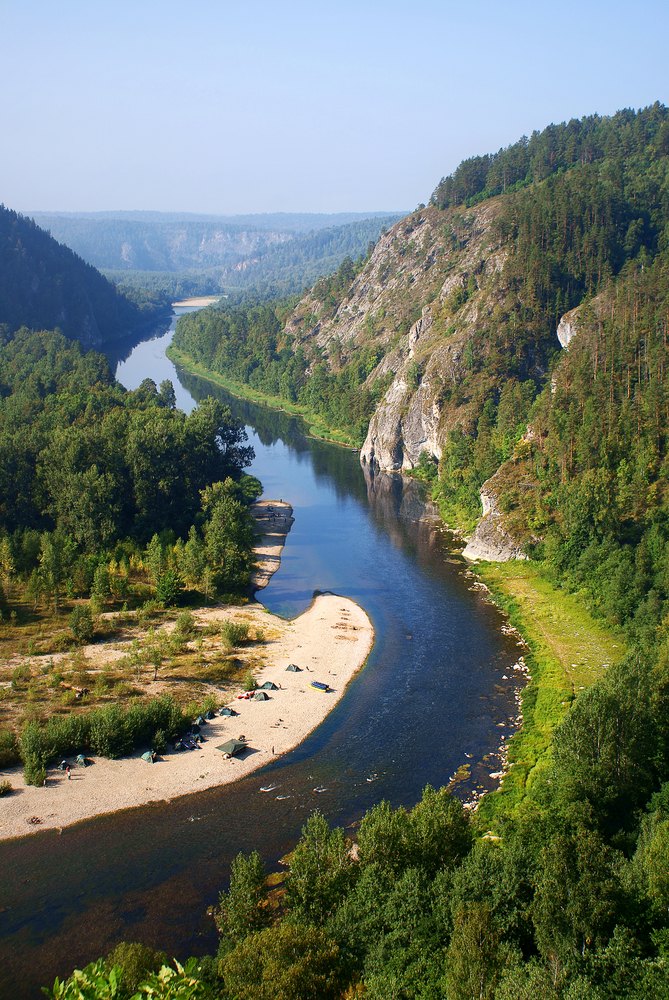
Safety
The best way to travel (especially with children) is in a four-passenger compartment. A compartment door can be closed from inside with a lock and a chain, so you can be sure of your safety. However, even if you leave your compartment for a short period, you better not leave money and valuable things there.
Passengers from lower seats can put their luggage on a shelf behind a couchette. Those who got upper seats put their things on a big shelf above the door. But if it’s hard to pick up a heavy bag, you can always ask your neighbour for a change, they usually agree.
The opened couchette carriage can be less safe. On one side, everybody sees everything, so a thief has to think twice before taking something. On the other side, when you sleep at night, you may not feel your bag being gently dragged from beneath your pillow. Therefore, it’s better to keep all valuable things under your couchette (do not forget to take them with you when you go out).
During intermediate stops you need to watch the time carefully and go to the train when the conductor gives a signal. Often passengers lose their trains, fascinated by the sights of surrounding area or communication with local sellers. And considering the rare train schedule in some remote stops, it is better to avoid such adventures.
Communication
Interesting and very different fellow passengers is a core element in a journey through such a big country as Russia. People travelling from big cities to their small hometowns, enthusiastic travellers, dreamers, sellers or soldiers – your neighbours can be really different. But the fact is that an interesting acquaintance (and not the only one) will take place. Even very quiet passengers start to socialize and talk to neighbours during such a long trip, even despite the language barrier.
People in trains usually open to a dialogue, they like sincere and philosophical conversations. Also, don’t be surprised if they will be willing to share their meal with you. Sharing food with neighbours (or at least an offer to join a meal) is a travel “etiquette norm” among Russians. You’re not obligated to offer you food or agree for someone else’s, though sometimes they can take offence to it. Or, if you refuse to try something, they can start to persuade you so hard that it becomes impossible to say “No”. The same is for alcoholic drinks: if you don’t want to try it, it’s better to think of a reason (best of medical nature) why you “cannot” do it in advance.
Conductors may seem unfriendly, but they are professionals who know their business. Since a conductor does not change during the whole 6-7 day trip, it is better to establish good relationships with him. In domestic trains, they rarely speak foreign languages, but gesture language and a smile always work.
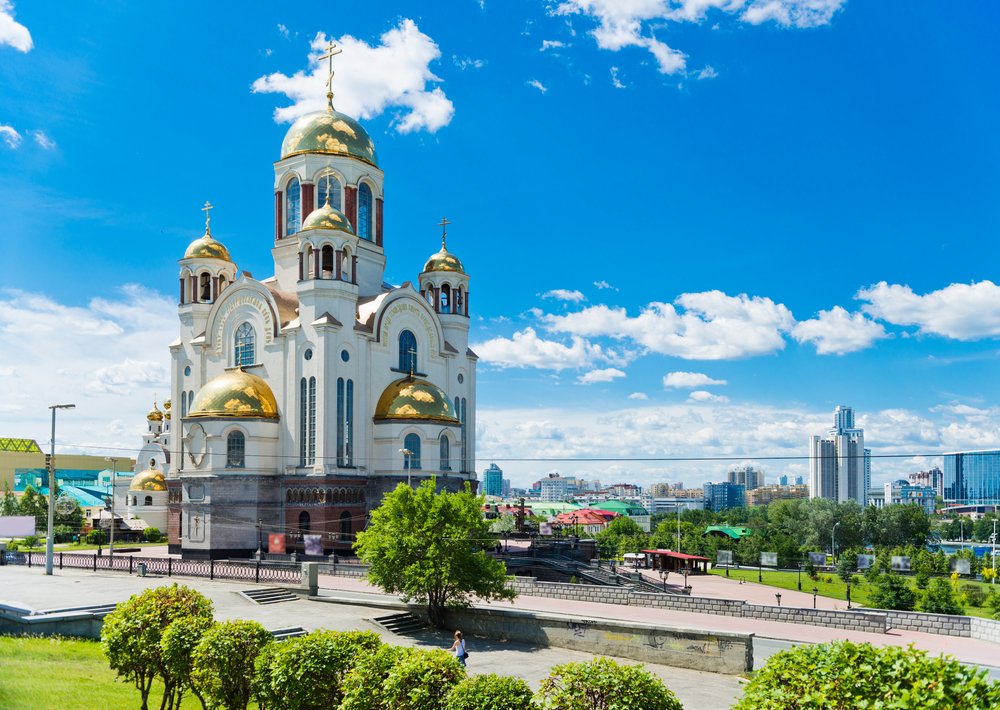
Tours with Trans-Siberian Railway
Some tourist agencies offer trips to the Trans-Siberian Railway with excursions and accommodation in a couple of cities.
Several times a year a luxury Golden Eagle train runs Transsibirka. Its design is styled on Russian folk crafts. Passengers have stops in Kazan, Ekaterinburg, Novosibirsk, Irkutsk, Lake Baikal, Ulan-Ude, asnd cross Mongolia. However, such trip will cost from $15000 per person.